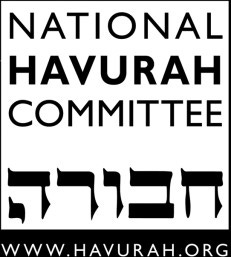Tachat ha-Shemesh
Under the Sun: Weekly Torah Insights from Miami
We begin with truth citing a familiar section of Talmud (Shabbat 31a) that does not seem at first to have anything to do with truth – אֶמֶת / emet.
שׁוּב מַעֲשֶׂה בְּגוֹי אֶחָד שֶׁבָּא לִפְנֵי שַׁמַּאי. אָמַר לוֹ: גַּיְּירֵנִי עַל מְנָת שֶׁתְּלַמְּדֵנִי כׇּל הַתּוֹרָה כּוּלָּהּ כְּשֶׁאֲנִי עוֹמֵד עַל רֶגֶל אַחַת! דְּחָפוֹ בְּאַמַּת הַבִּנְיָן שֶׁבְּיָדוֹ. בָּא לִפְנֵי הִלֵּל, גַּיְירֵיהּ. אָמַר לוֹ: דַּעֲלָךְ סְנֵי לְחַבְרָךְ לָא תַּעֲבֵיד — זוֹ הִיא כׇּל הַתּוֹרָה כּוּלָּהּ, וְאִידַּךְ פֵּירוּשָׁהּ הוּא, זִיל גְּמוֹר.
This is the Steinsaltz version from Sefaria:
There was another incident involving one gentile who came before Shammai and said to Shammai: Convert me on condition that you teach me the entire Torah while I am standing on one foot. Shammai pushed him away with the builder’s cubit in his hand. This was a common measuring stick and Shammai was a builder by trade. The same gentile came before Hillel. He converted him and said to him: That which is hateful to you do not do to another; that is the entire Torah, and the rest is its interpretation. Go study.
Here is a different understanding. Note that Shammai taught from the aspect of constancy and Hillel from compassion.
A gentile comes before Shammai and asks to be taught the entire Torah from the foundation (amud) of a single rule. רֶגֶל – regel = rule. Shammai pushes him away with an emet ha-banim - אַמַּת הַבִּנְיָן, which might mean either a builder’s ruler or the harsh truth – the truth being that one needs the framework of Torah before learning its content. Hillel, on the other hand, when asked the same question by the gentile, offers him the verse which might be considered a foundation for future Torah learning.
We learn from this that the truth is sharp and can alienate people. It can push them away.
Parshat Shoftim does not say – Truth truth you shall pursue, but rather – Justice justice you shall pursue (Deut. 16:20). That command - Justice justice you shall pursue – becomes the cornerstone of Social Justice in progressive Jewish denominations. What do our Hasidic masters have to contribute?
Me’or Einayim and Kedushat Levi offer no comments. We look ahead three generations to the Sefat Emet, the Torah teachings of Yehudah Aryeh Leb of Ger (1847-1905). The teachings of the Sefat Emet span forty years and are contained in seven volumes. I found nine references to Tzedek tzedek tirdof and translated two notable portions below. The translations are in italics and indented.
Sefat Emet,1871
צדק צדק תרדוף. שאין חקר וסוף לבחי' צדק ואמת. כי ה' אלקים אמת. ולכך לעולם יש להוסיף ולהעמיק שיהי' אמת לאמיתו. כי אינו אמת עד שנעשה כל האדם אחד מיוחד לעבודתו ית' ואמת מראש עד סוף אותיות התורה. בשם הרב הק' מפרשיסחא היהודי ז"ל להיות רדיפת הצדק. בצדק לא בשקר. ודפח"ח:
Tzedek tzedek tirdof – (the word justice is repeated to emphasize) that there is no end to the inquiry into justice and truth. HaShem Elohim is Truth. Therefore, there will always be the need to continue and deepen the inquiry so that our truth will draw closer to His Truth. There will be no Truth until each person becomes devoted to the service of the Blessed One.
It seems to me the doubling of tzedek suggests justice can be found on either side of an issue pointing toward a singular truth.
When Sefat Emet says that God is Truth, it may be that he is saying that as God is One, so truth also is one. Even this is unusual. Our tradition rarely says what God is. Rather we tend to say what God is not.
(The Hebrew word for) Truth – Alef Mem Tav – is inclusive of all the letters of the Torah, from beginning to end.
Alef is the first letter of the Hebrew alphabet, Tav is the last. The entire Torah fits within the framework of truth.
In 1871 the Sefat Emet concludes this teaching by citing the words of a favorite rebbe.
The rebbe known as the Jew of Persischa says: “The obligation is to pursue Tzedek. Within Tzedek there is no sheker (faleshood).”
The opposite of justice is falsehood. The Sefat Emet will return to this theme eight years later.
Sefat Emet, 1879
והעיקר לבקש את האמת. כמ"ש צדק צדק תרדוף. וכן ג"כ בשקר כתיב מדבר שקר תרחק. ושמעתי ממו"ז ז"ל שהגיד בשם הרב מפרשיסחא ז"ל שלא מצינו הרחקה בשום איסור בתורה רק חכמים תיקנו סיג. זולת בשקר. התורה עצמה אמרה תרחק. להראות חומר האיסור עכ"ד. וכמו כן מצינו כאן באמת צדק צדק תרדוף מה שלא מצינו במ"א. כי הוא יסוד הכל. וכתיב תרדוף. והיינו כי א"א לבא לגמרי לאמיתות האמת בעלמא דשיקרא. לכן לעולם יש לרדוף אחר הצדק לידע כי עדיין אינו מוצדק כראוי. וכשרודפין הצדק בעוה"ז משיגין אותה בשלימות בעוה"ב. וז"ש למען תחי' וירשת שהוא רמז לעוה"ב עולם שכולו חיים
The basic principle is to seek the truth. That’s why it is written, Justice justice you shall pursue (Deut. 16:20). Concerning falsehood it is written: You shall keep your distance from falsehood (Ex. 23:7). I learned from the Rabbi of Persischa that one does not find the notion of distancing in any other prohibition of Torah, rather (for other prohibitions) the rabbinic sages establish a fence (to keep one distant). It is only in the matter of falsehood (that we are directly prohibited). The Torah itself says you shall keep your distance from all such forbidden material. And so, we find here the truth of Justice justice you shall pursue, something not found in any other place. Because this is the foundation of everything.
This is the foundation of everything. The importance of this principle to the Hasidim of this period is similar to its importance in progressive Judaism today. If in the time of the Sefat Emet we are reminded to distance ourselves from falsehood, how much the more so now.
And it is written – you shall pursue. That’s because it is not possible to come to the absolute truth while here in this world of lies. Therefore, one should always pursue justice, so one might be reminded that one has not become as just as one might be. As you pursue justice in this world, so will be your fulfillment in the world to come. This is what is meant by the continuation of the verse – so you might live and inherit – this is a hint of the world to come where all is life.
Separating ourselves from the world of lies does not mean separating ourselves from those who perceive justice differently than we do. Hillel did not separate from Shammai. Indeed, it is only through interaction with others that we can sharpen ourselves and draw closer to the truth.
………………………………………………………………………………………………..
The National Havurah Committee (NHC) is a network of diverse individuals and communities dedicated to Jewish living and learning, community building, and tikkun olam (repairing the world). For more than 40 years, the NHC has helped Jews across North America envision a joyful grassroots Judaism.





